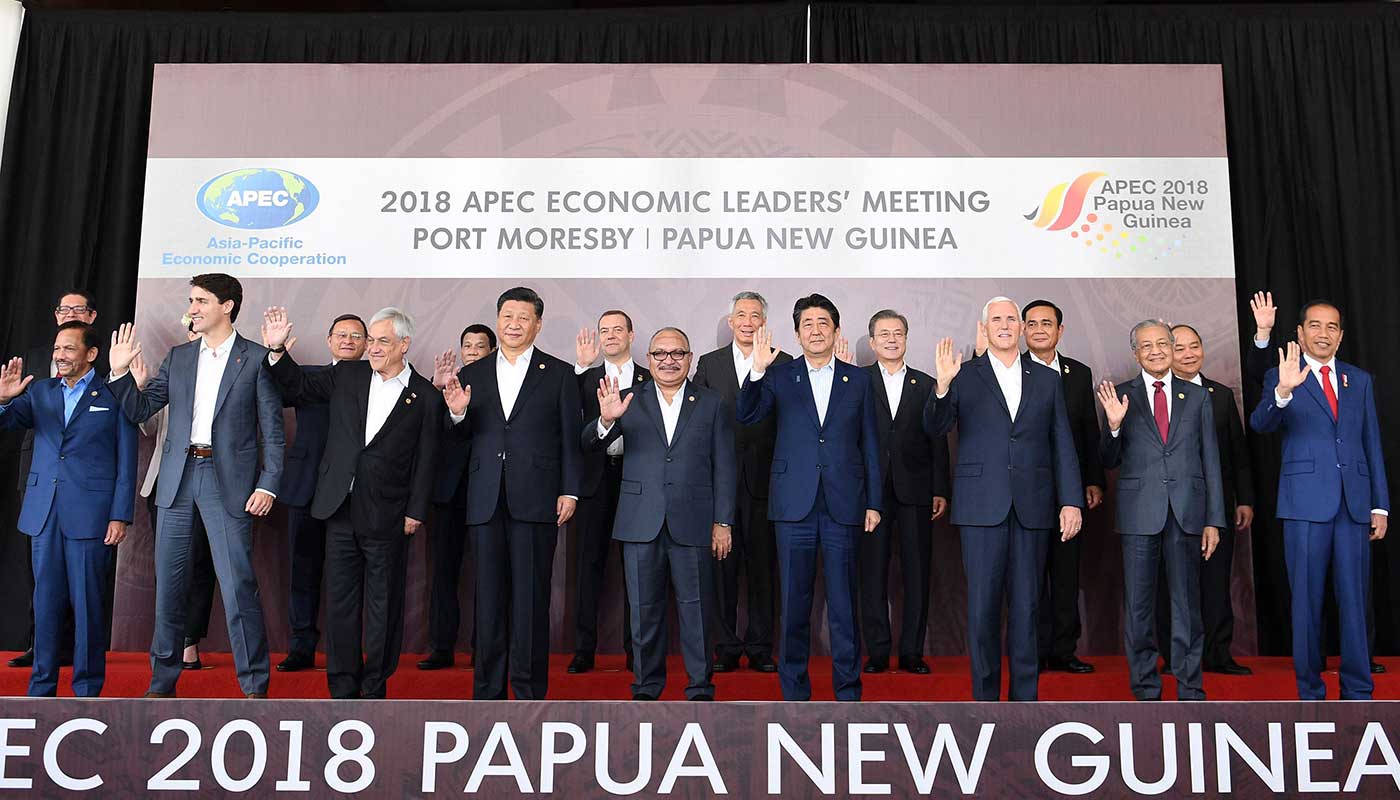US-China trade war ‘derails’ Apec summit
Regional meeting fails to reach agreement for the first time in 25-year history

A free daily email with the biggest news stories of the day – and the best features from TheWeek.com
You are now subscribed
Your newsletter sign-up was successful
The ongoing trade spat between the US and China has been blamed for an historic “failing” of the annual Asia-Pacific Economic Cooperation (Apec) summit, held this year in Papua New Guinea.
The Apec summit traditionally ends with a joint communique released by all 21 member states in attendance, however this year a “bitter battle for influence and power broke out among the world’s two superpowers”, the BBC reports.
Tensions over the wording of the final joint statement boiled over on Saturday, when Chinese diplomats “stormed” the office of PNG foreign affairs minister Rimbink Pato, demanding changes to the language in the draft communique.
The Week
Escape your echo chamber. Get the facts behind the news, plus analysis from multiple perspectives.

Sign up for The Week's Free Newsletters
From our morning news briefing to a weekly Good News Newsletter, get the best of The Week delivered directly to your inbox.
From our morning news briefing to a weekly Good News Newsletter, get the best of The Week delivered directly to your inbox.
The Chinese diplomats reportedly refused to leave Pato’s office until security officials were called to remove them.
According to CNN, the most problematic line in the draft statement was: “We agree to fight protectionism including all unfair trade practices” – language that the Chinese delegation felt was “some kind of singling out” by the other nations.
The Chinese delegation was also reportedly upset by assertions that China has been using its “Belt and Road” programme as a means to ensnare smaller nations in the region in a “debt trap”, by offering infrastructure investment loans that the countries are unable to pay back.
It was left to Canadian prime minister Justin Trudeau to announce there would be no joint communique this year, telling journalists: “I don’t think it will come as a huge surprise that there are different visions on particular elements regarding trade. Those prevented there being a consensus on the communique document.”
A free daily email with the biggest news stories of the day – and the best features from TheWeek.com
-
 How to Get to Heaven from Belfast: a ‘highly entertaining ride’
How to Get to Heaven from Belfast: a ‘highly entertaining ride’The Week Recommends Mystery-comedy from the creator of Derry Girls should be ‘your new binge-watch’
-
 The 8 best TV shows of the 1960s
The 8 best TV shows of the 1960sThe standout shows of this decade take viewers from outer space to the Wild West
-
 Microdramas are booming
Microdramas are boomingUnder the radar Scroll to watch a whole movie
-
 Greenland’s capital becomes ground zero for the country’s diplomatic straits
Greenland’s capital becomes ground zero for the country’s diplomatic straitsIN THE SPOTLIGHT A flurry of new consular activity in Nuuk shows how important Greenland has become to Europeans’ anxiety about American imperialism
-
 Epstein files topple law CEO, roil UK government
Epstein files topple law CEO, roil UK governmentSpeed Read Peter Mandelson, Britain’s former ambassador to the US, is caught up in the scandal
-
 Iran and US prepare to meet after skirmishes
Iran and US prepare to meet after skirmishesSpeed Read The incident comes amid heightened tensions in the Middle East
-
 Israel retrieves final hostage’s body from Gaza
Israel retrieves final hostage’s body from GazaSpeed Read The 24-year-old police officer was killed during the initial Hamas attack
-
 China’s Xi targets top general in growing purge
China’s Xi targets top general in growing purgeSpeed Read Zhang Youxia is being investigated over ‘grave violations’ of the law
-
 Panama and Canada are negotiating over a crucial copper mine
Panama and Canada are negotiating over a crucial copper mineIn the Spotlight Panama is set to make a final decision on the mine this summer
-
 Why Greenland’s natural resources are nearly impossible to mine
Why Greenland’s natural resources are nearly impossible to mineThe Explainer The country’s natural landscape makes the task extremely difficult
-
 Iran cuts internet as protests escalate
Iran cuts internet as protests escalateSpeed Reada Government buildings across the country have been set on fire